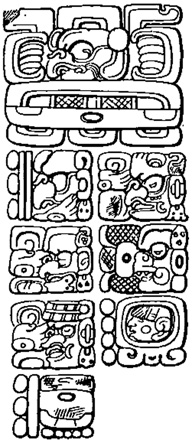False beliefs of the Mayan prophecy end of the world not entirely a grassroots movement

Long count calendar date corresponding to the mythical Mayan creation date of August 11, 3114 BC. This image is in the public domain, because its copyright has expired.
Lorenzo DiTommaso, professor of religion at Concordia University in Montreal, says that because of the grassroots nature of the Mayan apocalypse predictions, believers in the world’s end on December 21, 2012, will not have a leader to express their dissatisfaction that what they were told did not come to pass.
An online article by LiveScience says that:
Rationalizing and attempting to explain away failure is common among failed doomsday groups, said Lorenzo DiTommaso, a professor of religion at Concordia University in Montreal. In some cases, groups even claim that their prayers saved the world.
The Mayan apocalypse is likely to be different, if only because the Internet is bursting with dozens of contradictory prophecies about the day, DiTommaso told LiveScience.
In my humble opinion, the belief in the end of the world was not only a grassroots movement fanned by contradictory Internet prophecies but was also touted by the conventional media. One of the reasons I wrote the End of the World 2012 EBook and Book, and made the End of the World 2012 Movie was because of a very convincing public television documentary on the 2012 Mayan prophecy that had upset a friend of mine. I set out to find the truth.
In addition, there were many, many books written by, for the most part, “new age” authors that appeared to be full of “scientific evidence,” when, in fact, if a person was to actually research the Mayan calendar online in blogs by expert epigraphers or read books by Mayan experts, one would discover that many of the books had holes in their scientific evidence.
Perhaps those disgruntled believers actually do have leaders to show dissatisfaction with in these authors that wrote about fanciful events that were not the actual 2012 Mayan prophecies.